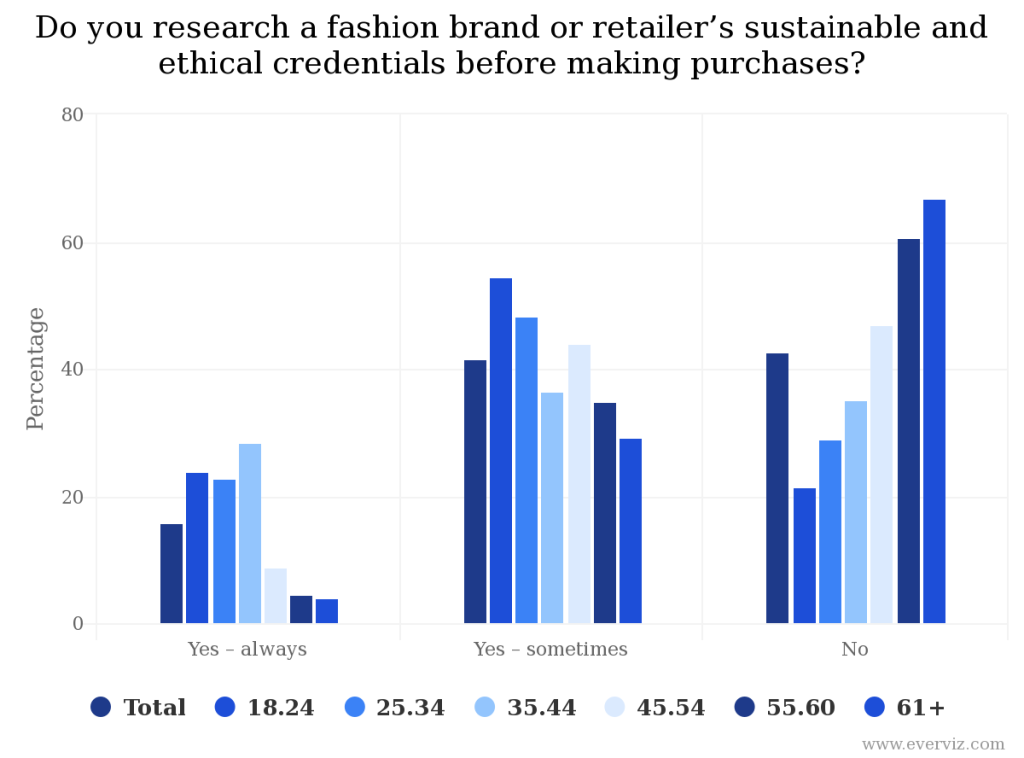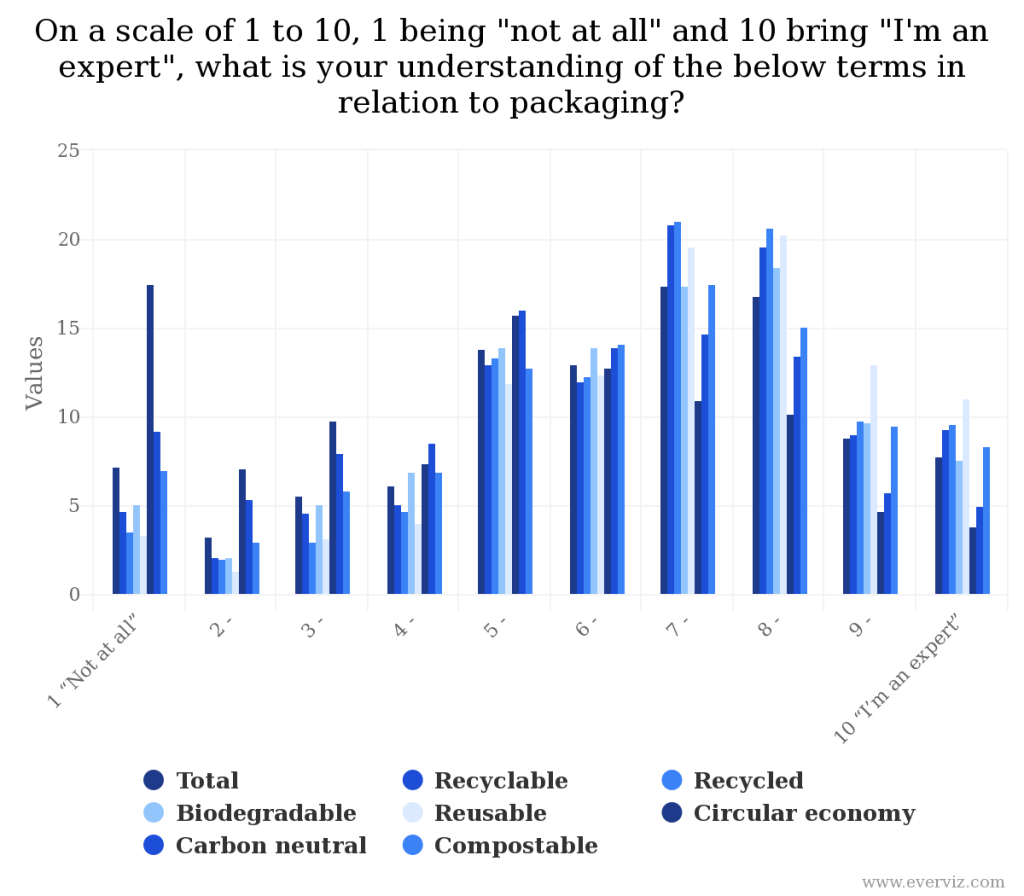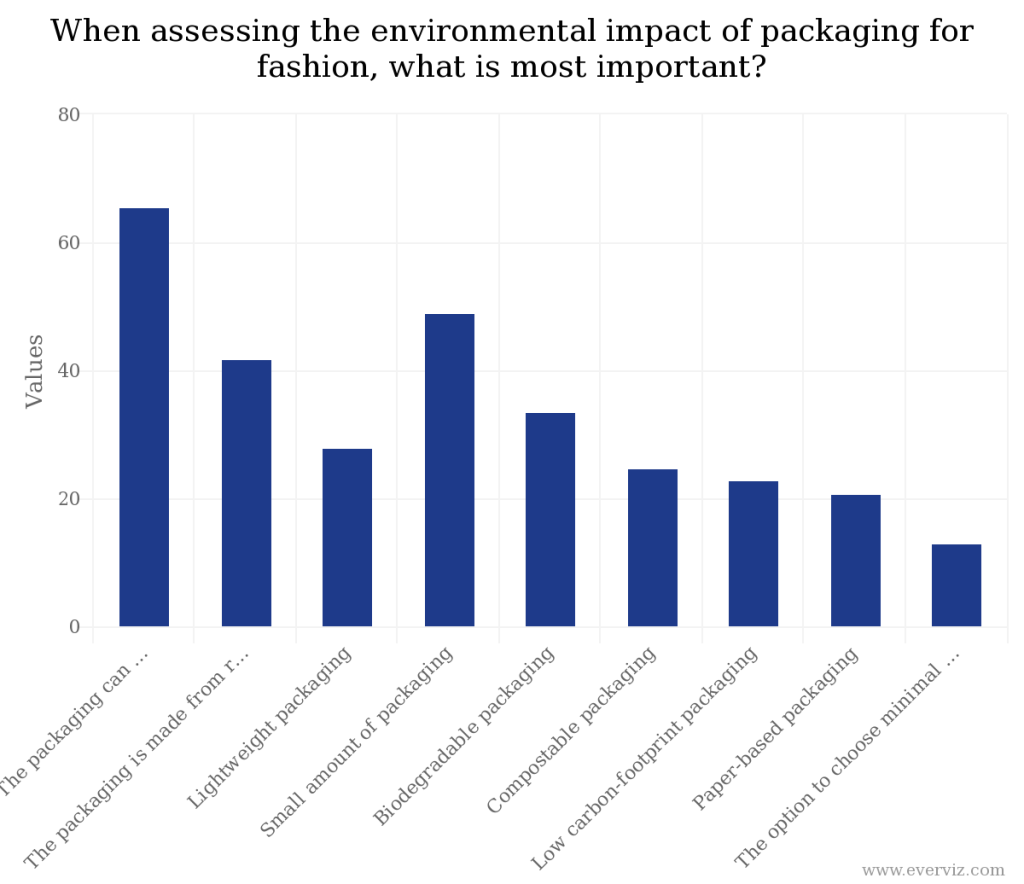The Drapers Sustainability and the Consumer report has returned for 2022, once again delving into the perspectives, preferences, and priorities of real consumers in relation to the fashion industry and its pivotal sustainability concerns.
Based on insights drawn from an exclusive survey of 2,000 UK consumers, the second edition of the report unveils the evolving sustainability mindsets of shoppers and how these perspectives influence their fashion purchasing behaviours.
Researching Purchase Decisions

Among the survey’s findings, over half (57%) of all respondents indicate that they engage in researching the sustainable credentials of fashion brands and retailers prior to making purchases. This trend is most pronounced among the youngest demographic, where a remarkable 79% of 18-to-24-year-olds engage in such research. Notably, 28% of older millennials aged 35 to 44 report conducting research for every purchase they make.
Perceptions of Sustainability Understanding

Respondents were asked to rate their own grasp of sustainability on a scale of 1 to 10, with 1 signifying minimal understanding and 10 signifying expertise. Interestingly, older millennials (aged 35 to 44) are the most likely to give themselves high ratings in sustainable and ethical fashion knowledge. Approximately 39.5% of this group rated their knowledge as 8, 9, or 10 out of 10, in contrast to 27% of the overall surveyed cohort. Broadly speaking, younger individuals tend to rate themselves as more knowledgeable than their older counterparts. For instance, only 0.6% of those aged 61+ deemed themselves experts, compared to 11% of those aged 35 to 44.
Tailoring Education for Different Audiences

Retailers seeking to engage older shoppers may benefit from offering simplified information about sustainability, using accessible terminology and clear definitions to enhance understanding. In contrast, younger consumers might appreciate more in-depth resources. Nevertheless, it’s essential to recognize that consumers across all age groups are continuously learning. Capitalising on opportunities to educate about topics ranging from pricing factors to the significance of sustainability is likely to foster better understanding.
Navigating Terminology
Specific terms such as “circular economy” and “carbon neutral” tend to be less understood by respondents, indicating a need for retailers to communicate these concepts in more approachable ways while offering comprehensive explanations. This holds particular relevance in the fashion industry, where intricate supply chains can complicate the comprehension of such terms. On the other hand, respondents are more comfortable with terms like “recyclable,” “recycled,” “reusable,” and “compostable.” Nevertheless, clear and concise definitions remain valuable to ensure accurate communication and eliminate misunderstandings.
Packaging and its Role in Sustainability Perception
The survey underscores that the recyclability of packaging is of paramount importance to respondents, standing out as a significant consideration when evaluating the environmental impact of their purchases. This heightened concern may stem from consumers’ awareness of the excess packaging waste generated by fashion items. Almost half (49%) also emphasise the importance of minimal packaging, highlighting the annoyance that arises from the overuse of packaging, particularly in online shopping.
The usage of recycled packaging, reduction in packaging volumes, and the avoidance of plastic packaging contribute significantly to consumers’ assessment of a brand’s overall sustainability. This trend is consistent across different age groups. Notably, older shoppers appear particularly interested in reduced plastic usage, with 81% of those aged 61+ using this criterion to evaluate sustainability performance.
Garrett Quinn, Chief Sustainability Officer at Smurfit Kappa, explains that packaging and recyclability hold significance for consumers as they feel accountable for the items they discard: “Recyclable packaging means that the packaging they discard is not going to landfill.” He emphasises that paper-based packaging is a favourable choice due to its high recovery and recycling rates, especially within well-established paper-recycling infrastructures.
Myerton Packaging provides a series of practical solutions in terms of paper-based packaging. Learn more here.
